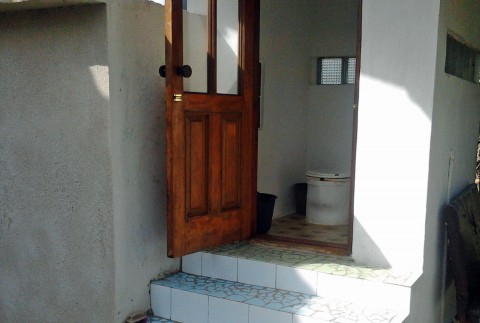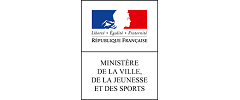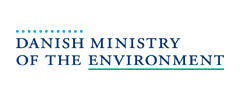Providing clean water in Georgia
Friends of the Earth Europe, visited the village of Sepieti, on the Black Sea coast of Georgia and reported on their work with WECF and local partners to improve the village's water and sanitation
25.10.2013 | David Heller, Friends of the Earth Europe
David Heller, from Friends of the Earth Europe, visited the village of Sepieti, on the Black Sea coast of Georgia. He met with local residents who are working with Friends of the Earth Georgia to improve their village's water and sanitation a snapshot of the organisations nation-wide campaign to grant everyone in Georgia their right to safe water and decent sanitation.
Link to the article on the FOE Europe website
The Kolkheti region, on Georgia's Black Sea coast is criss-crossed with rivers and covered in wetlands and fresh-water lakes. Water and the life it brings should be the region's most valuable resource. However, many people living in the region lack access to clean water and decent sanitation. These are some of the issues that Friends of the Earth Georgia is working to address through projects with local communities.

Many rural areas are not connected to the centralised water system, and even in urban centres such as Poti (the largest city in Kolkheti region) supply is intermittent. With water often easily accessible around 20cm underground, many local communities dig their own wells, some of which are only two metres deep.
This may seem like an easy solution, but the lack of adequate sanitation for households and public buildings, combined with local cattle-grazing, means human and animal waste often flows directly into surface water, and into groundwater and drinking-water supplies. The result is alarming levels of nitrates and bacteria in the wells, and frequent outbreaks of waterborne diseases such as diarrhoea.
Friends of the Earth Georgia, with the support of WECF (Women in Europe for a Common Future) work to improve water and sanitation in the region through numerous projects with local schools and residents, and the help of 46 local coordinators across the country.
In the village Sepieti, in the Abasha region, local coordinator Velodi Ochigava worked with pupils in the village school. They were shocked to find that their school's well was polluted and highly contaminated with nitrates. As a result, the school now has a new well and indoor composting toilet, to replace the outdoor brick building that housed rudimentary hole-in-the-ground latrines. The project has also supplied shower facilities for the school, with water heated by a solar collector.
In the same village, Jambuli Melia, a small-scale local farmer boasts a new composting toilet, which prevents the pollution of the local water supply, and provides compost. He also has a biogas digester, which converts waste from his cows into methane gas for cooking, and quality fertiliser for his land. The anaerobic digestion process used to create his fertiliser improves nitrogen uptake from his crops, reducing nitrogen run-off into the water supply and the need for chemical fertilisers. The project has also supplied a deeper borehole for clean and healthy drinking water, shared with other families in the neighbourhood.
Local coordinators, like Velodi Ochigava, are crucial to Friends of the Earth Georgia's work. They make the initial contact with potential beneficiaries, organise awareness raising events, and ensure that the materials supplied during the projects are well maintained. They are on hand to resolve technical issues, and to help improve the technology. Beneficiaries should always contribute something themselves to the project in terms of materials, labour or finances to ensure they feel ownership and take maintain and care for materials.
The project started in 2007 and demand for compost toilets is steadily increasing. They represent a huge step forward in terms of sanitation in local villages like Sepieti, and are especially beneficial for women.
Anna Samwel, coordinator for the Caucasus for WECF said: "These toilets are about meeting the human right to sanitation and clean water. In areas without mains sewage flushing toilets are not possible. Compost toilets are an accessible, clean and safe option, and are especially beneficial for pregnant women."
In the past six years, Friends of the Earth Georgia and WECF have shown that providing water and sanitation for schools and households far from centralised water and sewage systems is possible. The organisations are now pushing for legislation at the national level that would grant everyone in Georgia their right enshrined in the Millennium Development Goals to safe water and decent sanitation.
Related News
Rural Georgians look to the sun to ease energy poverty
Video (6 min): by Deutsche Welle & Maria Lesser on our project in Georgia
04.06.2018
Implementing Agenda 2030 in Georgia: Where Are We Now?
WECF organised with Georgian government and the UN a workshop on the Sustainable Development Goals in Tbilisi, 19-21 February 2018
22.02.2018 | Tbilisi, Georgia
Round table discussion Violence Against Women and Economic Development
The round table treated the topic of Violence against women and Economic Development
13.12.2017
Sustainable Development Goal # 5 Gender Assessment in Georgia
This research was conducted by the organization We Research within the auspices of the project Women 2030 funded by the European Union and implemented by WECF International
27.09.2017
Feasibility study of gender-sensitive energy cooperatives in Georgia, Ukraine, Armenia and Moldova
New report by WECF offers report offers an overview of the feasibility of gender-sensitive energy cooperatives in Georgia, Ukraine, Armenia and Moldova.
12.05.2017





































